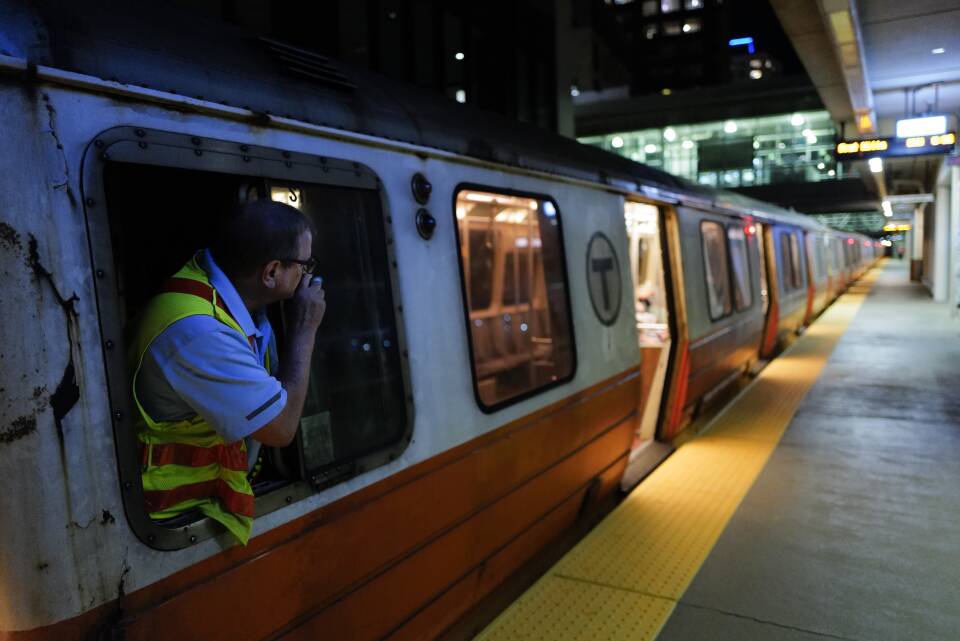Massachusetts voters could be asked to decide on two different ballot questions this November that would each reshape the relationship between ride-hailing companies and their drivers.
One, backed by labor groups, would allow drivers to organize. The other, supported by Uber, Lyft and other gig economy apps, would write it into state law that drivers are independent contractors, while also providing them some new benefits. Depending on what happens over the next few months, it’s possible both could pass and be implemented simultaneously.
Meanwhile, this summer or fall a ruling could come in a 2020 lawsuit filed by then-Attorney General Maura Healey that alleged the companies were denying their workers rights and benefits by improperly classifying them as contractors rather than employees. Even if voters decide to change the law and define drivers as contractors going forward, if the court rules in the AG's favor, the office plans to seek the retroactive wages, reimbursement and other benefits due to workers before that vote.
Amid that tangle, supporters of each potential question asked lawmakers Tuesday to bring all sides to the table to find a legislative compromise that can serve as an alternative to a ballot fight. As legislators consider that possibility, they also signaled a deep skepticism toward the ride-hailing industry and its positions.
“I don't trust you because you're big corporations,” Sen. Cindy Friedman told a panel of ride-hailing and food delivery app representatives. “You're in it to make money, which is fine.”
Friedman, an Arlington Democrat, and Rep. Alice Peisch, a Wellesley Democrat, are leading a special committee charged with reviewing the different questions proposed for the Nov. 5 ballot.
Before the proposals come before voters, lawmakers have a chance to act. They can pass a question as written or propose a substitute measure.
Both the industry-backed and union-backed questions are also subject to legal challenges seeking to keep them off the ballot.
Brendan Joyce, Lyft’s public policy manager in Massachusetts, told the committee his company “strongly prefers a legislative solution,” and is pursuing the ballot questions to keep its options open. Proponents of the industry-backed ballot measure filed five different versions of it, and say they will ultimately select just one to move ahead with.
Joyce said many drivers prefer the “minute-by-minute flexibility” they get working for Lyft, and said that freedom would not be available to them in a traditional employment model.
The unionization question is backed by Local 32BJ of the Service Employees International Union.
Roxana Rivera, assistant to the president of 32BJ, said a union would give drivers the means and collective power to address problems like declining wages.
Pointing to the record-setting spending on a California ballot initiative that defined gig-economy drivers there as contractors, Rivera asked lawmakers to quickly convene stakeholders in search of an alternative.
“All parties should come to the table to share their different viewpoints and concerns," she said. "Though whatever those differences may be, we emphasize that labor stands united in the goal of improving the rideshare industry while protecting the rights of all Massachusetts workers."
One member of the eight-lawmaker committee, Winchester Sen. Jason Lewis, is also a sponsor of a separate bill pending in the Legislature that would grant collective bargaining rights to drivers.
“I don't think we're stupid enough to assume that the reason you spent hundreds of millions of dollars to win at the ballot in California and the reason you're essentially holding a gun to our heads in Massachusetts, saying that if you don't get your way in this state, you'll similarly go to the ballot, is because of your professed care about the status of your drivers,” Lewis told the industry panel at one point. “The reason you're doing this is because of your bottom line.”
Sen. Paul Feeney of Foxboro told the industry representatives to “buckle up a little bit” when it was his turn to question them. He asked the panel on whether there was anything in state or federal law that would take away drivers’ flexibility if they became employees.
Uber's Lucas Munoz responded that the "fundamental bargain" in an employment relationship is "control over time in exchange for the employer obligations."
"You have staffers. Does that bargain work for you so that they work whenever they want, for however many hours they want? They do which jobs they want? If they don't like the assignments from Sen. Feeney's office, they can walk across the hall to Sen. Lewis' office and see if there's better work over there?" Munoz said. "No, because the fundamental bargain of employment is control over time."
Neither Munoz or Joyce answered Feeney directly when he asked if Uber or Lyft could consider pulling out of Massachusetts if the business model here ends up changing to something the companies do not like.








